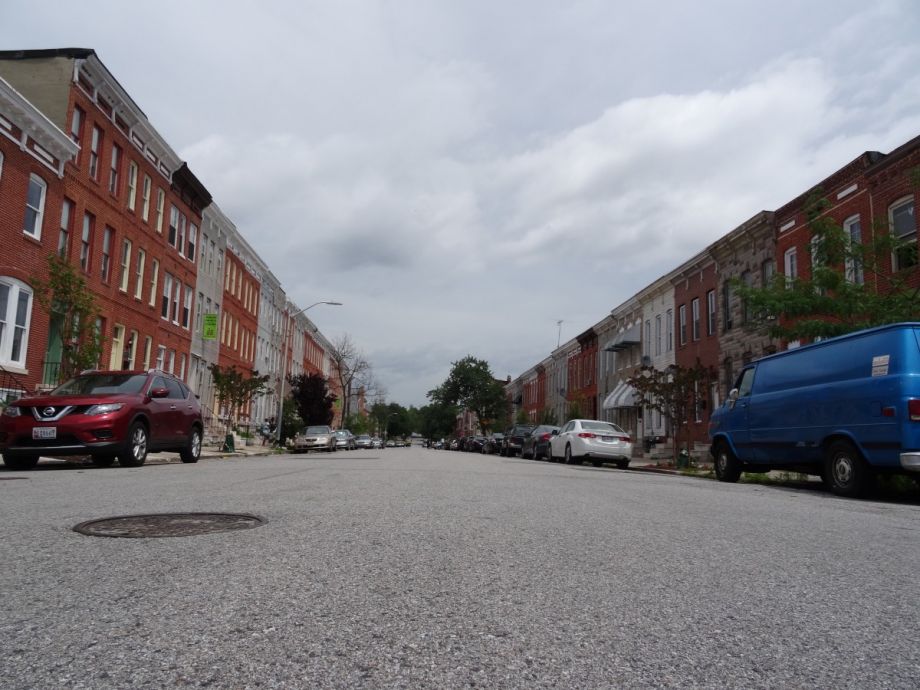Every year, more than 6,000 Baltimore renters and their families are evicted. Across the U.S., only Detroit has a higher percentage of residents facing that same fate. While it’s been all too easy for Baltimore officials to chalk this grim reality up to the wretched effects of poverty, a new report tells a more complete story.
“Justice Diverted,” issued by the Public Justice Center (in collaboration with the Right to Housing Alliance and scholars from Johns Hopkins University and the University of Baltimore) is based on a study of Baltimore tenants called to rent court. Housed in the District Court of Maryland, the court is where landlords take renters who are late on their monthly payments. Through examining hundreds of surveys, in-depth interviews, court records and city data, the researchers discovered that the court systematically “prioritizes efficiencies which privilege the landlord’s bottom line.”
While activists and legal experts previously suspected that rent court had a disproportionate impact on black families in Baltimore, advocates are now armed with concrete data to make a political case for reform. The study found that most people who are called to rent court — and ultimately evicted — are black women living near the federal poverty line and raising at least one child. Though black women make up 34 percent of Baltimore’s population, they comprised 79 percent of those surveyed in the rent court study.
Although rodent infestations, plumbing leaks and peeling paint could all be grounds for withheld rent, most tenants summoned to court were unfamiliar with their legal rights. Some tried to prepare by searching the Internet and watching movies and “Judge Judy,” but 73 percent of those surveyed did not know they could raise a defense if their house or apartment had serious defects. Indeed, nearly 80 percent reported at least one housing health or safety threat when they showed up to court. Nearly 60 percent cited insect or rodent problems, 37 percent cited plumbing leaks, and 41 percent cited lead poisoning anxieties due to chipping paint.
Unlike Baltimore’s foreclosure crisis — which elicited a sense of public emergency and outcry — the eviction crisis has largely been ignored. But in 2009, in the midst of the housing market crash, Baltimore’s eviction rate actually exceeded the rate of ratified mortgage foreclosures; by 2013, Baltimore’s eviction rate exceeded that of foreclosure filings.
One reason for the lack of attention: There’s no system to track data about who is being evicted, and when and why. “It is essential that the city direct funds to creating and disseminating data on rent eviction so that homelessness prevention strategies and housing policies reflect the real indicators of city renters’ hardship,” the report concluded.
The report makes more recommendations for reforming rent court and ameliorating the city’s eviction crisis. To reduce the number of eviction cases filed annually (currently 150,000), the city could instate a mandatory pre-filing period, like those that exist in the vast majority of states. Requiring pre-filing notices enables most rental disputes to be resolved without resorting to litigation.
The court could also more closely investigate whether landlords who file claims are properly licensed and compliant with lead paint laws. The researchers found that a majority of landlords presented the court with incorrect or incomplete registration and licensing information — but were not caught or held to account. Baltimore could also expand its licensing and property inspection requirements, because the current legal protections fail to cover the full range of rental units that tenants reside in.
Other recommendations were focused on leveling the playing field for tenants inside the courtroom and helping families avoid the traumatic hardship of losing their homes overall in the city. The authors call for increasing tenant legal representation, court assistance and funding for eviction prevention programs.
Judge John P. Morrissey, the chief judge of the Maryland District Court, told the Baltimore Sun that many of the recommendations outlined in the report would require a legislative response from lawmakers in Annapolis. Which is why the report was timed to coincide with the launch of the 7,000 Families Campaign — a political effort to stop the “housed-to-homeless” pipeline for poor Baltimore families and push for local reforms.
“We can correct some of this through legislative fixes at the state and city level, but that’s going to take some muscle,” says Jessica Lewis, an organizer with the Right to Housing Alliance. “It’s going to take a unified renter-led movement, and growing our collective power. More than half of the population of Baltimore City are renters, and it’s time that the eviction crisis, and the role that rent court plays in it, is taken seriously.”
Rachel Cohen is a D.C.-based freelance journalist and a contributing writer for the Intercept.
















